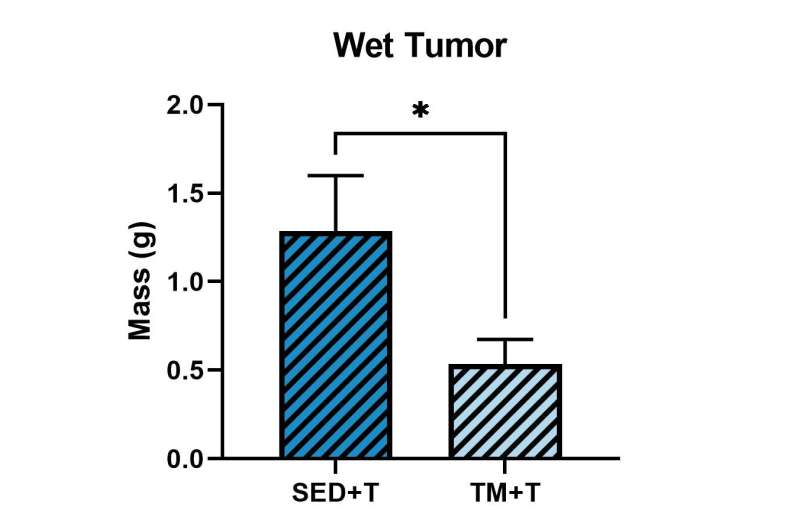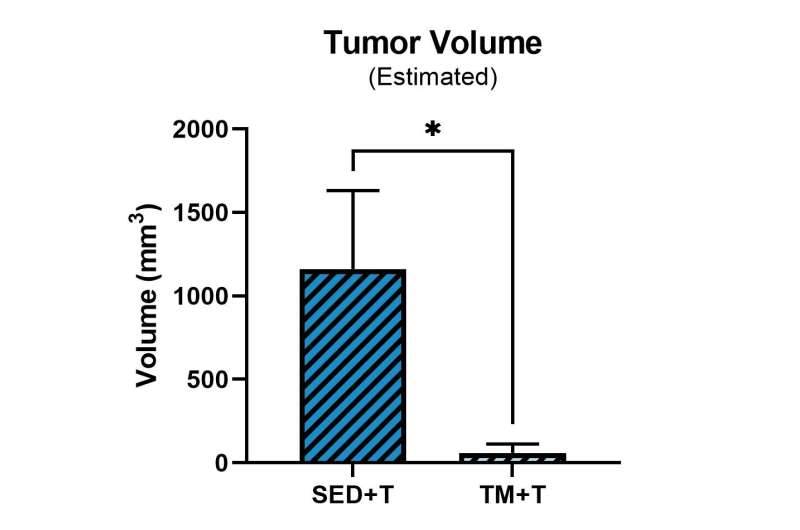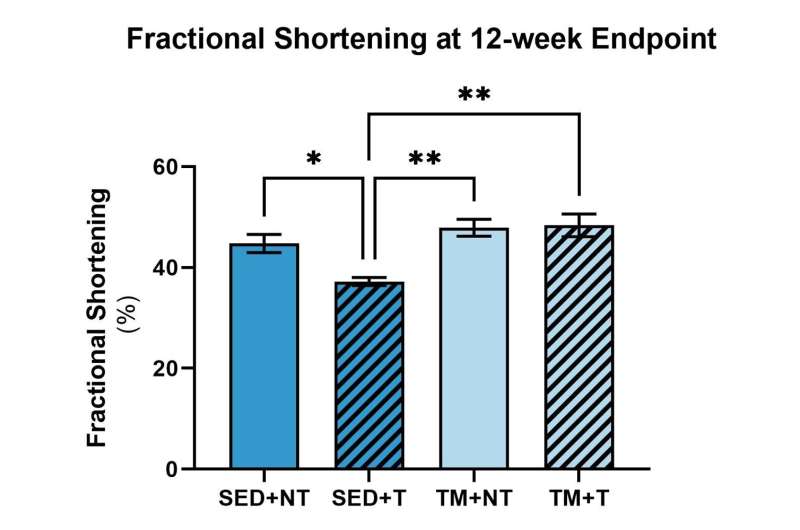Exercise could help reduce severity of serious cancer complication

A new study has identified yet another benefit of keeping up your exercise routine. In experiments performed with mice, researchers found that exercising prior to developing cancer was associated with slower tumor growth and helped reduce the effects of a cancer complication known as wasting syndrome, or cachexia.
Cachexia is a metabolic wasting disorder that affects up to 80% of patients with advanced cancer and is associated with about a third of all deaths from cancer. People with cachexia experience severe progressive muscle wasting, a decline in heart structure and function and an overall poorer quality of life.
"Most exercise, especially aerobic exercise, is easily accessible and affordable," said Louisa Tichy, a graduate student in Traci Parry's lab at the University of North Carolina at Greensboro. "Therefore, engaging in consistent aerobic exercise such as running is a cost-effective way to reduce the risk of cancer and cancer complications."
Tichy will present the new research at the American Society for Investigative Pathology annual meeting during the Experimental Biology (EB) 2022 meeting, to be held April 2–5 in Philadelphia.
Previous research has shown that exercise could have anti-inflammatory effects and might positively impact cancer cachexia by slowing its development and preserving cardiac structure and function. However, very few studies have focused on preconditioning.

"Our preclinical study indicated that preconditioning—or exercise prior to tumor bearing— appears to play an important cardioprotective role during cancer cachexia by preserving cardiac structure and function," said Tichy. "It also helped stunt tumor growth, even when animals did not exercise during the tumor-bearing period."
For the new study, the researchers studied mice that either exercised on a treadmill for eight weeks or did not perform any exercise. After the eight weeks, the researchers induced cancer in some of the exercised mice and some sedentary mice while keeping some mice from both groups cancer-free to act as controls.
The researchers found that mice with cancer and a sedentary lifestyle had poorer heart function—as measured with echocardiography—than the mice that exercised prior to cancer induction. Also, mice in the exercised group had a smaller tumor volume and a 60% smaller tumor mass than mice in the sedentary group.

"This data is crucial in identifying the significance of exercise and the best timing of exercise as a protective and preventative measure against the detrimental effects of cancer cachexia," said Tichy.
The researchers are working to understand the underlying proteins and pathways that are affected by cancer and exercise so that this information can be used to inform exercise interventions. They also point out that creating safe and effective exercise interventions for cancer patients would require evaluating the best intensity, duration and timing of exercise in preclinical models before moving to studies in people.
More information: 689.9 - Cardioprotective Effects of Preconditioning Exercise in the Female Tumor-Bearing Mouse, Experimental Biology (EB) 2022, www.eventscribe.net/2022/EB202 … =Tichy&mode=presinfo





















